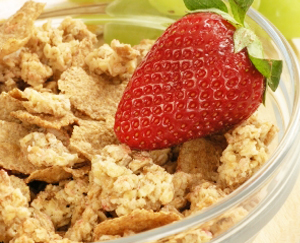Gluten Free
What does following a gluten-free diet mean? That you're embarking on an easy diet with a wide range of health-promoting effects. Instead of dwelling on what you’re giving up, consider that you’re going to enjoy a whole new world of delicious food options to meet your special dietary needs. You’ll be eating seasonally, choosing more fresh fruits and vegetables, focusing on meats, seafood, poultry, legumes, lentils, corn, and rice, and discovering fascinating ancient grains such as quinoa, amaranth, and millet. You’ll be able to eat potatoes, eggs, most cheeses, even chocolate (!)—and enjoy them without guilt because you’ll be taking good care of your body. In fact, you’ll probably end up eating—and feeling—better than ever!
Visit this page for more information about living Gluten Free
---
We carry a large variety of gluten free items, the brands listed below represent just some of the offerings we carry















More Diets
- By Kimberly Beauchamp, ND
Plant “Fats”: A Simple Way to Lower Cholesterol
Taking a plant sterol-stanol supplement could be a quick and easy way to reduce high cholesterol, according to a study in the International Journal of Food Sciences and Nutrition. Plant sterols and stanols are naturally occurring fat-like molecules found in small amounts in foods like nuts, seeds, fruits, vegetables, legumes, and grains.
Taking a plant sterol-stanol supplement could be a quick and easy way to reduce high cholesterol
How do they work?
Plant sterols and stanols are structurally similar to cholesterol and have been studied extensively for their cholesterol-lowering ability. Plant sterols and stanols seem to lower cholesterol by competing with it for absorption and by increasing the amount of cholesterol that is eliminated from the body.
Plant sterols and stanols appear to work best when eaten as part of a meal. For this reason, they’re frequently added to cooking oils, margarine-type spreads, dairy products, orange juice, and salad dressings, as a convenient way to get them into the diet.
But combining plant sterols and stanols with food means that these foods need to be eaten every day in order to reap the cholesterol-lowering benefits.
Supp it up
Researchers wanted to see if taking a plant sterol and stanol supplement might also help reduce cholesterol levels and triglyceride levels.
For six weeks, 32 people with high cholesterol (average age 58 years) took 1.8 grams per day of a plant sterol-stanol supplement or placebo. At the end of that time, the groups were switched, so that the placebo group then received the sterol/stanol supplement and vice versa.
After taking the plant sterol-stanol supplement, total cholesterol, LDL (“bad”) cholesterol, and non-HDL cholesterol (total cholesterol minus the heart-healthy HDL cholesterol) were significantly lower compared with placebo. HDL (“good”) cholesterol and triglycerides didn’t differ between the two treatment periods.
“The use of plant sterols and stanols in capsules or tablets offers a practical option compared to traditional food vehicles by virtue of being easily incorporated into a cholesterol-lowering regimen without altering the macronutrient distribution,” says lead study author, Kevin Maki, of Provident Clinical Research, the company that manufactures the supplement. “This feature might increase compliance during long-term use compared with the types of dietary changes needed to incorporate plant sterol/stanol foods.”
Eat your way to lower cholesterol
More studies are needed to confirm these positive results. And if you want to beat high cholesterol the old fashioned way—by eating well and exercising regularly—remember to include plenty of these proven winners:
Nuts: It’s not easy for a food to earn the right to bear a health claim, but nuts have done it. As part of a healthy diet, many types of nuts (including walnuts, almonds, hazelnuts, and pecans) may lower the risk of heart disease. So switch out the potato chips for a handful of nuts. Packed with protein, fiber, and healthy fats, nuts make a satisfying and nutritious snack that can lower your cholesterol, too.
Oats: Diets that are high in soluble fiber from foods like oatmeal can help lower cholesterol. For added benefit, add some chopped apples or strawberries and a sprinkling of nuts.
Olive oil: Olive oil may help lower LDL cholesterol levels and reduce heart disease risk. Be sure to choose extra-virgin olive oils. The less processed an oil is, the greater its anti-inflammatory action in the body.
(Int J Food Sci Nutr 2012;doi:10.3109/09637486.2011.636345)












